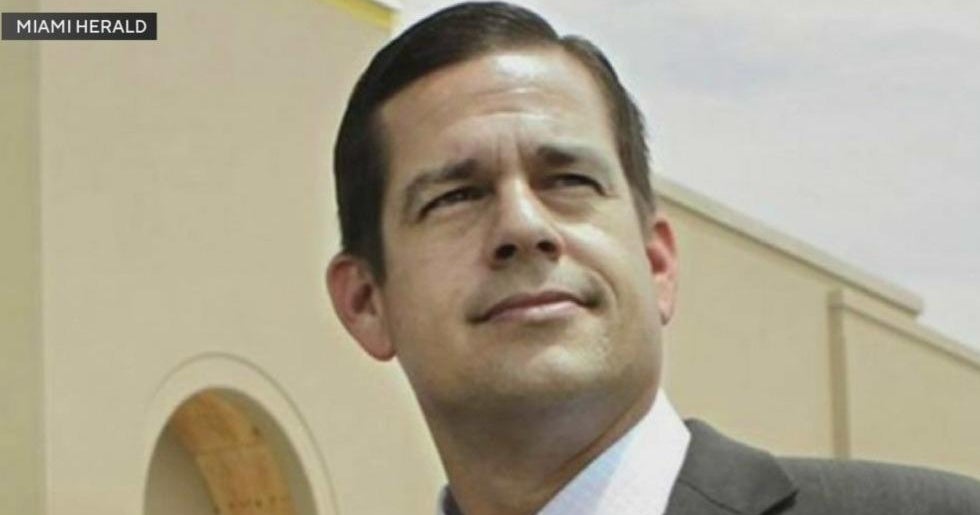U.S. Customs Shares A Peek At Mysterious Airport Contraband
MIAMI (CBS4) - Miami International Airport is the second busiest airport in the United States for International flights, behind New York's JFK.
Every day, 30,000 passengers pass through U.S. Customs at MIA. It's here that they not only scan who is coming here, but what they are bringing.
From a team of Beagles, to X-ray machines scanning thousands of bags, customs agents have their hands full. With food.
"Look there is another one," shouted a customs dog handler.
Michael Greenberg is the U.S. Customs Station Chief. "You've probably had it in a cocktail. This is what it looks like."
Greenberg showed CBS4's David Sutta a smorgasbord of food they have collected, an international Thanksgiving of sorts.
"This is weeks of stuff I assume?" Sutta asked Greenberg.
"No this is only after a day or two," Greenberg replied.
The trove of contraband is from just one concourse. There are two.
Sutta was shown mystery meats from the Caribbean, exotic fruits from South America, dates from Saudi Arabia and a ball of mud. Mud?
"This is a bird's nest, from Brazil?" Sutta inquired.
"Yes," said Greenberg.
Sutta, still curious asked, "And this is made out of mud?"
"Yes it is," Greenberg responded.
Apparently, the owner decided to smuggle the bird eggs... nest and all.
"Just when I thought I've seen everything," exclaimed Greenberg. "I see something else."
Every agent at MIA has a story of someone coming through Customs bearing bizarre and illegal items.
"Live turtles in their suitcases, live pigeons," recalled U.S. Customs Chief Specialist Ellen Ingber.
Then there was the time Ingber found the unspeakable.
"We went through the bag we saw brain parts, all kinds brain tissue, skull, and so forth," Ingber told Sutta.
But little has phased Ingber, except for the one time she opened a plastic grocery bag.
"I took it, I opened it up. I didn't know what it was. I asked him what it was and the moment he told me it was his father's ashes was the moment I sneezed and these ashes came up all over the place. Need I tell you more?" asked Ingber.
Most of the contraband comes through the airport because of ignorance. People just don't know certain items are illegal. Regardless, it is up to the agents to catch a laundry list of banned items that carry disease, insects and ultimately, economic disaster.
"The United States is a big agriculture country and we export more agriculture than we buy from other countries. So if anything were to happen to our agriculture it would be devastating to our economy," said Greenberg.
A perfect example is the non-native Medfly which surfaced in South Florida consuming fruit at an astonishing rate.
"Each female Medfly will lay thousands of eggs, which will hatch into another thousand fruit flies and will lay another thousand eggs each. And before you know it you will have a large infestation destroying a lot of fruits," explained Greenberg.
If you declare the fruits, vegetables or meat at Customs, you have to fork it over. If you try to conceal it, Customs will hit you with a fine that starts at $300 dollars. And people have been known to be quite creative to conceal their treats.
"I had a woman come in once, she was in a wheelchair and her jacket looked very heavy, very thick. I asked her to open it up and the whole jacket was lined with pork sausages," Ingber told Sutta.
As innovative as humans can be, they can't seem to outsmart good old Pepper! The dog has been trained to sniff out hundreds of specific foods from the Caribbean and South America. What did Pepper just find?
"I have no idea," said his handler.
Even if agents have no idea what it is that is found... it is seized. And remember that smorgasbord of food? Well, instead of Thanksgiving tables, the seized food is sent into a machine Customs calls the grinder... where everything, including insects are pulverized and sent to the sewer. Meats are sent off to an incinerator to be reduced to a pile of ash.
U.S. Customs officials told Sutta that there are two flights that they are 100% always going to catch prohibited food: flights from Haiti and Cuba.
The agents here in Miami have gotten very good at this game of hide and seek. They'll have to keep it up. They expect Miami International to soon surpass JFK as the busiest international airport in the nation.



